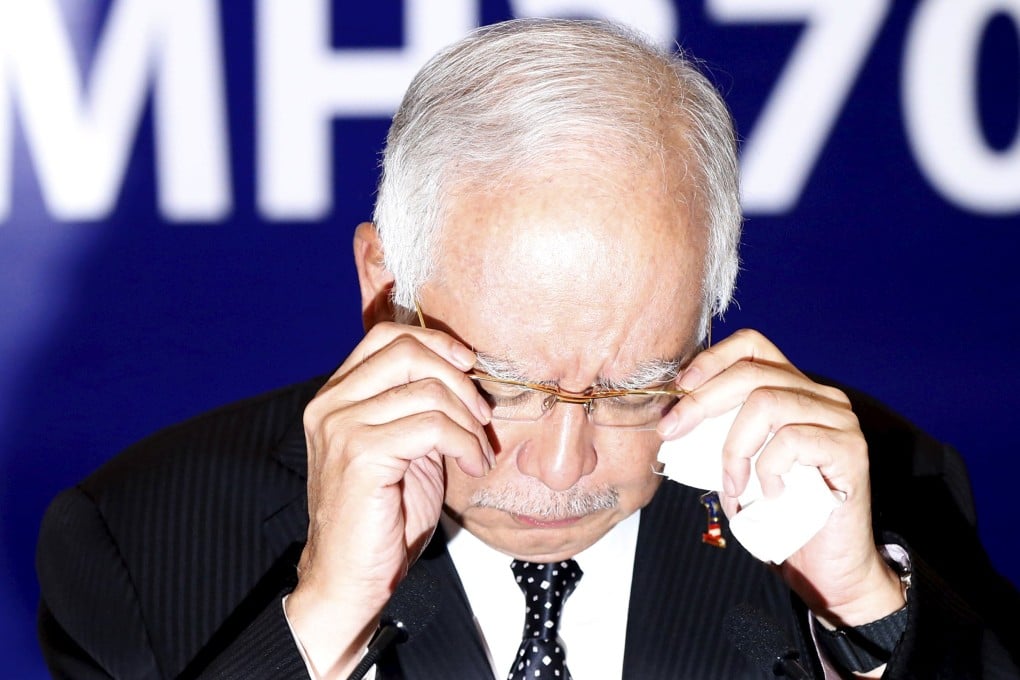How a missing plane and graft scandal are testing Malaysia’s PM Najib Razak

Would a government manipulate news of a devastating plane crash in an attempt to save its political skin?
No one is directly accusing Malaysia of doing that. But Prime Minister Najib Razak’s crisis-plagued government’s controversial statements about the Malaysia Airlines Flight 370 crash investigation make some wonder.
Three days after Razak’s middle-of-the-night announcement that a wing flap that washed ashore in the southern Indian Ocean was definitely part of the missing plane, investigators from France, the U.S., Australia and other countries have not backed up his assertion.
Things got stranger after Razak’s transport minister said Malaysian searchers found a window, seat cushions and other plane debris on the French island of Reunion and gave them to French investigators. But French officials told news agencies Friday they had not received the parts.
During the worst financial scandal in Malaysian history, the confusion surrounding the multinational flight investigation seemed, for some, to thicken the gloom enveloping this country, long a bulwark of stability and wealth in Southeast Asia.
For months, Razak’s government has been dealing with much more than the mystery over Flight 370, which went missing in March 2014 after taking off from Kuala Lumpur with 239 people aboard, most of them Chinese. All are presumed dead.